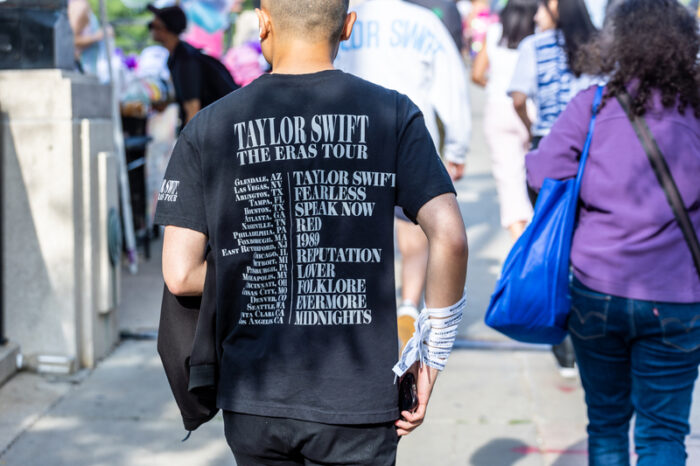As our cities and towns slowly begin to open back up, there are all sorts of public activities that are starting to look a little more like normal. Examples of people returning to their favourite things, like ...
Sports events. Traveling. Going to movie theatres. And attending live music.
Music is a huge part of how humans relax, celebrate, bond, and express emotion. And for the musicians themselves, it's their job. After over a year in isolation, you'd better believe that they're excited to get back on the road and come to your town! But about that journey.
Traditional touring requires carrying a lot of gear, such as these amplifiers, which are used to project sound from an instrument. (Getty Embed)
'Going on the road', or touring, is something that requires a lot of resources. You've got your musical equipment, luggage, band members and crew, all in a van that eats up a lot of gas. And if you're a BIG time act, your tour becomes a traveling village, all carried by buses, tractor trailers, and even jet planes. It's not very environmentally friendly.
For years, some musicians have looked around and asked themselves, Is there a better way to do this? Now, the veteran UK band Massive Attack have actually put forward a plan for that 'better way'. Working with a climate change professor, they've released the world's first plan for 'green touring'. That's music to our ears!
Build a report
Bandleader Robert Del Naja has been outspoken for years about a number of causes. (Getty Embed)
Though Massive Attack were most popular in the 1990s and 2000s, they still typically play for crowds of thousands of people. The band is also politically active in a number of causes, including anti-war efforts, human rights, and environmentalism. So it made sense when bandleader Robert Del Naja announced in 2019 that he had asked researchers at the University of Manchester to do a report on the carbon footprint of the music industry.
Leading the report was Carly McLachlan, Director of the Tyndall Centre for Climate Change Research in Manchester. She and her team looked at how the entire music industry did business—not just musicians, but promoters and agents (who book tours), venue owners (who host shows), managers, and more. In the end, they confirmed what Del Naja suspected—sending bands around the world sends a lot of carbon into the atmosphere.
Building a better road forward
Trains can help musicians be more green, says the report. (Getty Embed)
So what is the solution? McLachlan's report—which they call a Roadmap, get it?—makes a long list of suggestions for everyone in the industry to follow. Each one is aimed at making green touring a real possibility.
For example, bands can tour by train instead of using vans, buses, and planes. And to cut down on the amount of gear being transported from city to city, venues can supply gear for the bands to use. (This is known as plug-and-play because musicians can just show up with an instrument and plug it into the venue's sound system, rather than bringing everything else with them.)
The report is extremely detailed, even getting into how crowds can get to the venue, how refreshments are being supplied to them at shows, and how governments can help.
We can’t negotiate with a code red for humanity. We have to stop heating our planet.
To help the music industry #ActNow, the Roadmap we commissioned from @TyndallCentre analysts & climate scientists is published today. pic.twitter.com/PbVitqCwuM
— Massive Attack (@MassiveAttackUK) September 6, 2021
Coming together
The report is designed for every musician—from the world's biggest acts to ones that play small clubs—but it will work best with support from superstars like Ariana Grande. (Getty Embed)
Of course, this report isn't a law. For it to work, everyone needs to come together and make the changes that apply to them. And because they have the most influence—and the biggest carbon footprints— the world's bigger music acts and promoters need to be leaders and help change their industry.
Overall, this report is a really interesting example of the kind of reports that we think that we'll see a lot more of over the next while. Because it's all well and good to say, We need to be greener! But without a list of actual things to do to make that happen, many people feel too confused to even begin.
Here's to Massive Attack and researchers like Carly for giving all of us the map we need!
 Massive Attack have been a popular touring band for three decades. Now they hope to change how their business works. (ID 103685522 © Christian Bertrand | Dreamstime.com)
Massive Attack have been a popular touring band for three decades. Now they hope to change how their business works. (ID 103685522 © Christian Bertrand | Dreamstime.com)









